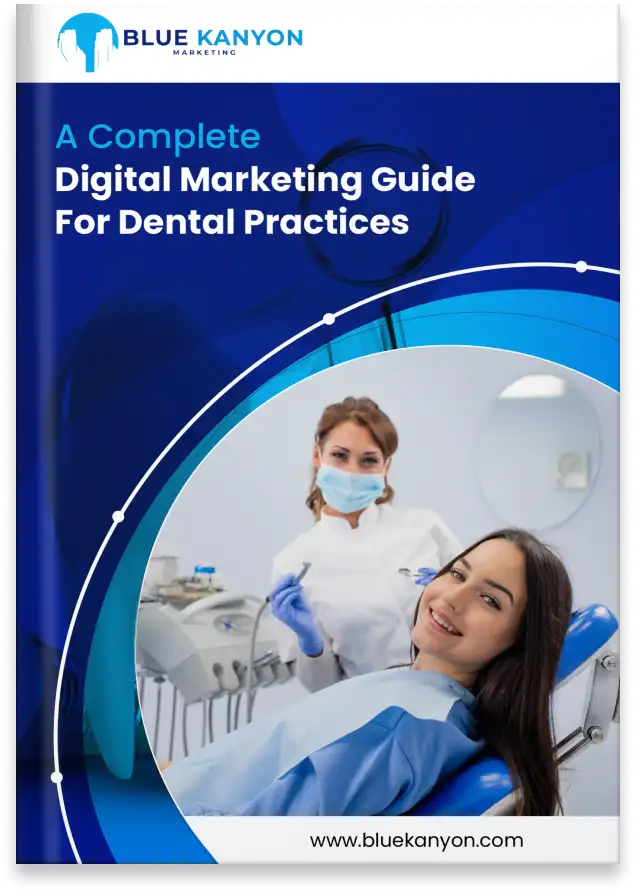
Transformative Healthcare Marketing Strategies for Today's World
In today’s rapidly evolving healthcare landscape, effective marketing is crucial for success. With patients becoming more involved in their healthcare choices, medical practices and health systems must adopt robust healthcare marketing strategies. This blog will explore the importance of healthcare marketing, the challenges faced in the industry, and the top strategies to empower your healthcare organization’s success.
Understanding the Healthcare Market
The healthcare market is a complex and highly regulated environment. Navigating it requires a keen understanding of the unique challenges and opportunities present. Let’s delve into some of the primary challenges that healthcare organizations face.
Adapting to Change: Challenges in the Evolving Healthcare Market
# Regulatory Compliance
Healthcare organizations must adhere to stringent regulations governing patient information and advertising claims. Ensuring compliance with HIPAA and other regulatory frameworks is essential to avoid legal repercussions.
# Rising Costs
The cost of healthcare continues to rise, impacting both providers and patients. Efficient marketing strategies in healthcare industry can help attract and retain patients, improving revenue streams.
# Access to Care
Ensuring that patients have access to care is a critical issue. Marketing strategies in healthcare industry must focus on improving accessibility and informing patients about available services.
# Data Security
Protecting patient data from breaches is paramount. Digital marketing strategy for healthcare must incorporate robust security measures to safeguard sensitive information.
# Technological Integration
Integrating new technologies into existing systems can be challenging but is necessary for improving patient care and operational efficiency. Marketing strategies for medical practices need to highlight technological advancements to attract tech-savvy patients.
Connect with Our Business Growth Consultant Today!
Healthcare Marketing Strategy is Important for Business Success
Effective healthcare business marketing strategies are vital for driving business success.
Here’s why:
Directing Patients Towards Solutions
Marketing helps in guiding patients to the right solutions for their healthcare needs, ensuring they receive the best possible care.
Building Trust and Credibility
Well-crafted marketing campaigns build trust and credibility, which are crucial for patient retention and satisfaction.
Strengthening Relationships Between Patients and Physicians
Navigating the Digital Landscape
A comprehensive digital marketing strategy for healthcare enables organizations to reach patients through various online channels, enhancing their digital presence.
Encouraging Patient Engagement
Engaging patients through targeted marketing efforts improves their involvement in their own care, leading to better health outcomes.
Read About: Business Growth & Marketing System
Have Questions? Let’s Talk!
The Benefits of a Strong Healthcare Marketing Strategy
# Establish Trust and Demonstrate Expertise
Engaging patients through targeted marketing efforts improves their involvement in their own care, leading to better health outcomes.
# Build Your Business Brand Awareness
Consistent and strategic marketing efforts increase brand awareness, making your organization more recognizable to potential patients.
# Retain Long-Term Patients and Improve Loyalty
Effective marketing not only attracts new patients but also helps retain existing ones by building long-term loyalty.
# Establish Trust and Demonstrate Expertise
Marketing strategies for medical practices should focus on providing easy access to digital healthcare services, meeting the modern patient’s expectations.
# Adapt with Healthcare Data Analytics
Utilizing healthcare data analytics helps in refining marketing strategies, ensuring they are targeted and effective.
Top Healthcare Marketing Strategies to Boost Your Healthcare Brand
# Craft a Seamless Digital Experience for Your Patients
# Ensure Consistency in Your Healthcare Branding
Consistent branding across all marketing channels builds trust and recognition, making your organization stand out.
# Analyze Your Marketplace Thoroughly
Understanding market dynamics is crucial. Use data analytics to gain insights into patient needs, preferences, and competition.
Optimize your website for search engines and content to improve visibility and attract more patients organically.
# Personalize Interactions to Foster Engaging Relationships with Your Customers
Leverage patient data to create personalized marketing campaigns that resonate with individual patient needs and preferences.
# Develop a Robust and Responsive Website for Your Organization
Creating a strong website with proper maintenance is the cornerstone of your digital presence. It provides essential information and facilitates patient interactions.
# Use Social Media Marketing
Social media marketing strategies for healthcare can significantly increase patient engagement and brand awareness through targeted campaigns on platforms like Facebook, Twitter, and LinkedIn.
# Monitor and Enhance Management of Patient Reviews
Actively manage and respond to patient reviews to maintain a positive online reputation and build trust.
# Stay Informed About Your Competition and Industry Trends
Keep abreast of industry trends and competitor activities to stay competitive and innovative in your marketing efforts.
# Implement Referral Programs
Encourage satisfied patients to refer friends and family, leveraging word-of-mouth marketing to grow your patient base.
# Establish a Google Business Profile
A Google Business profile increases your online visibility, making it easier for patients to find and contact you.
# Utilize Pay-Per-Click Advertising
Paid campaign advertising (PPC) effectively drives targeted traffic to your website, increasing patient inquiries and appointments.
# Produce Educational Content for Both Patients and Physicians
Educational content builds trust and positions your organization as a thought leader in the healthcare industry.
# Focus More on Local Market
Local SEO marketing is the best way to target your local market and ensure that your marketing efforts reach the most relevant audience.
# Establish Authority in the Healthcare Industry
Consistently producing high-quality content and engaging in industry discussions helps establish your authority and credibility.
Learn More About: Fractional CMO Services for Your Healthcare and Wellness Business Needs
Conclusion
Implementing effective healthcare marketing strategies is essential for navigating today’s competitive healthcare market. By focusing on creating seamless digital experiences, building strong brands, and utilizing data analytics, healthcare organizations can enhance patient engagement, retention, and satisfaction.
For growing businesses, leveraging a Fractional CMO and specialized Business Marketing Services can provide the expertise and resources needed to succeed in this dynamic industry.
Let’s Talk Growth - Schedule Your Free Consultation Now!
Empower your success with a business growth consultant for comprehensive healthcare marketing solutions and take your organization to new heights!
Contact Blue Kanyon today to make your health and wellness business marketing strategy more effective with our ebook.
Frequently Asked Questions (FAQs)
Strategic marketing in healthcare plays a crucial role in guiding patients toward the right healthcare solutions, building trust and credibility, and enhancing patient engagement. Effective healthcare marketing strategies are designed to attract, engage, and retain patients by leveraging data analytics, personalized communications, and consistent branding. These strategies ensure that healthcare organizations can navigate the digital landscape, foster strong patient-physician relationships, and ultimately drive business success.
Healthcare marketing differs from other types of marketing primarily due to its focus on patient care and regulatory compliance. Marketing strategies in the healthcare industry must adhere to strict regulations like HIPAA, ensuring the protection of patient information. Additionally, healthcare marketing emphasizes building trust and credibility, which are essential for patient retention and satisfaction. Unlike traditional marketing, healthcare marketing strategies often include elements like patient education, personalized outreach, and a focus on improving patient outcomes through targeted campaigns.
Success in healthcare marketing is measured through a variety of metrics aligned with key performance indicators (KPIs) and marketing return on investment (ROI). These metrics include patient acquisition rates, patient retention rates, engagement levels, conversion rates, and overall patient satisfaction. By leveraging healthcare data analytics, organizations can refine their marketing strategies to ensure they are effective and targeted. Regular analysis of these metrics helps in optimizing marketing efforts and achieving business goals.
Successful healthcare marketing relies on several key technologies:
- Healthcare Customer Relationship Management (CRM): Integrates patient data from various sources to personalize marketing outreach and improve patient engagement.
- Content Management System (CMS): Manages and streamlines healthcare marketing content, ensuring consistency and efficiency.
- Marketing Automation: Automates the distribution of content, ensuring timely and relevant communications with patients.
- Engagement Center: Optimizes call center operations, providing a comprehensive view of each patient’s history for personalized interactions.
These technologies, combined with a robust digital marketing strategy for healthcare, enable smarter patient acquisition and retention, driving long-term growth and success.
Health systems can improve their healthcare marketing strategy by focusing on several key areas:
- Crafting a Seamless Digital Experience: Ensure that patients can easily navigate digital platforms, providing a smooth and hassle-free experience.
- Consistent Branding: Maintain consistency across all marketing channels to build trust and recognition.
- Market Analysis: Use data analytics to gain insights into patient needs and competition.
- SEO: Optimize websites and content for search engines to attract more patients organically.
- Personalized Interactions: Leverage patient data to create targeted marketing campaigns that resonate with individual patient needs.
- Social Media Marketing: Utilize social media marketing strategies for healthcare to increase patient engagement and brand awareness.
Yes, implementing a marketing automation tool will impact the marketing structure. It will increase efficiency and allow marketing departments to execute smarter patient acquisition and retention programs. A marketing automation tool can handle repetitive tasks, freeing up team members to focus on more strategic activities. This shift enables organizations to leverage data-driven insights for precision marketing, ultimately enhancing the effectiveness of their healthcare marketing strategies. As a result, the marketing team can dedicate more time to value-added projects and initiatives, driving better outcomes and business success.
A tailored marketing strategy boost your dental practice by targeting the right patients, enhancing online visibility, and building trust. With strategies like SEO, patient reviews, and educational content, potential clients can easily find and trust your services. This approach boosts patient engagement, helping you fill your schedule and grow your practice sustainably.
A focused marketing strategy can expand your chiropractic practice’s reach by highlighting your unique approach to wellness. With targeted ads, content that educates patients, and a strong social media presence, you can attract clients actively seeking pain relief and wellness care. This builds credibility, boosts client retention, and drives growth within your community.
A strategic marketing approach brings your dermatology practice to the forefront, connecting you with clients who value skincare and aesthetic health. Through personalized campaigns, informative content, and targeted online ads, your services become easily accessible to those seeking treatments. This visibility builds trust, enhances patient engagement, and drives long-term growth for your practice.
Digital Marketing Guide for Naturopath Practices
Download this free ebook to learn how to grow your Dental business online.

- Author
- Recent Posts
Bhuwan Sharma
Owner at Blue Kanyon
Bhuwan has over 25 years of experience as a management consultant, senior management, and as an entrepreneur. He is known for his problem-solving skills and ability to launch and grow businesses. He has developed business and marketing strategies and executed them successfully.

